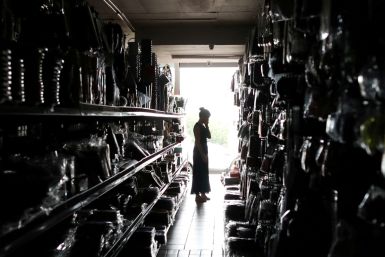President Ramaphosa Calls For Inclusivity To Grow Biodiversity Economy

President Cyril Ramaphosa highlighted the importance of focusing on previously disadvantaged individuals and communities to maximize the benefits of the biodiversity economy.
Speaking at the Inaugural Biodiversity Economy and Investment Indaba held in Boksburg on Tuesday, the president urged finance institutions, philanthropies, civil society and traditional leaders, healers and practitioners to join hands to support the government's vision for a transformed biodiversity economy.
The president said work is in progress to develop Natural Capital Accounting for the biodiversity sector through a partnership between the Department of Forestry, Fisheries and the Environment, Statistics South Africa and the South African National Biodiversity Institute.
He highlighted that this "initiative will ensure that the contribution of the biodiversity sector, including its entire value chain, is formally recognized," adding that sustainable use of biodiversity is a pillar of rural economies across South Africa.
"We must put rural communities at the center of every decision-making process, and ensure we are empowering and equipping them for the new opportunities in the biodiversity sector," he said, SA News reported.
The president went on to explain the benefits of sustainable biodiversity, noting that it contributes to urban economies.
"For example, traditional medicine markets exist in nearly every major urban center in South Africa," he said. "The trade in indigenous medicine plants is a multi-million-rand industry that supports jobs and livelihoods across the value chain."
He added, "As a country, we have been firm that communities must benefit in a tangible manner when plant and animal species are harvested for commercial gain."
Ramaphosa cited the example of Rooibos, a plant that grows in South Africa's fynbos biome used for herbal tea, that is not just popular in South Africa but around the world.
Four years ago, the South African Rooibos Industry and the Khoi and San Councils initiated the first industry-wide benefits-sharing agreement. Since then, the agreement has allocated a total of R28 million to the two councils, acknowledging their indigenous knowledge of the Rooibos species.
"Sustainable mass cultivation of indigenous plant species must support the creation of businesses, factories and value chains that allow for end products to be exported to the rest of the continent and abroad," he added.
Ramaphosa last week highlighted the government's commitment to implementing programs and initiatives to improve land reform, with a focus on boosting agricultural growth and creating more jobs in the industry.
© Copyright 2025 IBTimes ZA. All rights reserved.


















